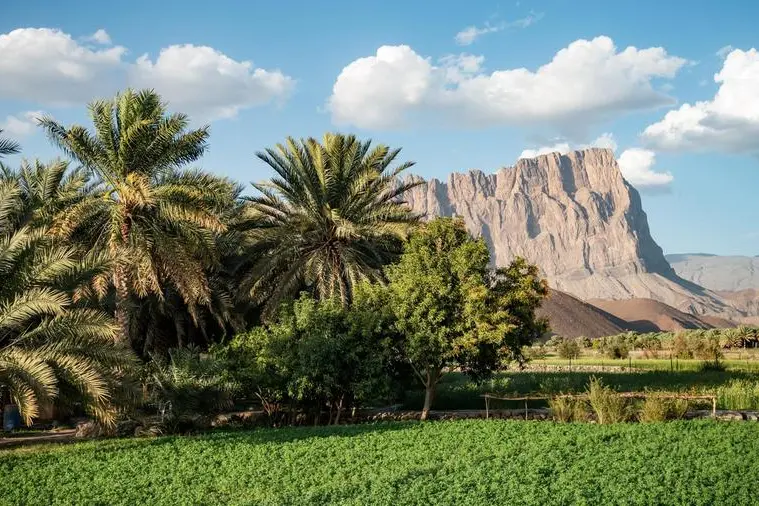PHOTO
Muscat – The Ministry of Housing and Urban Planning (MHUP), in collaboration with Ministry of Agriculture, Fisheries and Water Resources and Authority for Small and Medium Enterprises Development, signed 62 usufruct contracts with a combined investment value of over RO12.5mn on Wednesday. These contracts aim to bolster both the agricultural and industrial sectors.
The pacts were signed by H E Hamad bin Ali al Nazwani, Undersecretary for Housing in MHUP, in the presence of H E Yaqoub bin Khalfan al Busaidi, Undersecretary for Fisheries in the Ministry of Agriculture, Fisheries and Water Resources (MAFWR).
Among the agreements are seven usufruct contracts for agricultural ventures, with an investment value of over RO1.5mn and spanning over 320 acres in Dakhliyah, Dhofar and South Batinah. These projects are focused on fortifying food security and fostering growth in the agricultural sector.
The agreements include five usufruct contracts for agricultural projects worth over RO2.6mn and covering over 700 acres in Buraimi, Dhofar and Dhahirah facilitated through the Tatweer platform.
MHUP has finalised four agreements for a total area exceeding 168,000sqm aimed at establishing branches of Oman Agricultural Society in South Sharqiyah, North Sharqiyah, Buraimi and Dhahirah.
Twenty-eight usufruct contracts were signed for agricultural projects focused on wheat cultivation in the Al Najd area of Dhofar. These contracts are for an area exceeding 6,400 acres and worth RO5.6mn.
Twelve contracts worth RO998,000 were signed with SMEs in South Batinah and Dakhliyah spanning over 6,000sqm for industrial and commercial projects.
Additionally, six usufruct contracts were signed for various investment and development projects in agricultural and industrial sectors, totalling an investment value of over RO1.7mn and spread over 533,000sqm. These projects are distributed across South Batinah, Dakhliyah, North Sharqiyah and Dhofar.
Ahmed bin Saud al Kamyani, Director General of Land at MHUP, emphasised the fact that these agreements align with the ministry’s strategy to optimise returns on government land, enhance financial sustainability and create an attractive investment environment for investors.
Additionally, they contribute to the development programmes of governorates by providing essential land and increasing job opportunities for citizens.
Kamyani informed that 45 of these projects emerged from the Food Security Laboratory. These include projects aimed at achieving self-sufficiency in wheat production, alongside various other agricultural activities and the provision of land for agricultural associations.
Regarding contract implementation oversight, Kamyani stated that investors have provided investment plans for all projects. Agricultural projects, in particular, are monitored in collaboration with MAFWR through joint teams and work committees established between the two ministries to evaluate project implementation during the initial two years of the contract.
© Apex Press and Publishing Provided by SyndiGate Media Inc. (Syndigate.info).





















